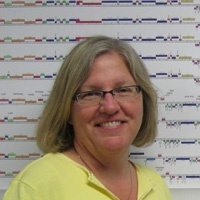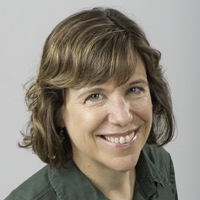Welcome to the forums at seaphages.org. Please feel free to ask any questions related to the SEA-PHAGES program. Any logged-in user may post new topics and reply to existing topics. If you'd like to see a new forum created, please contact us using our form or email us at info@seaphages.org.
Recent Activity
New hosts - human microbiome
| Link to this post | posted 11 Nov, 2021 00:43 | |
|---|---|
|
|
Hi everyone, In 2022 I will be developing a new CURE at UCLA focusing on analysis of the human microbiome. I'd like to align it with our Phage Hunters class, and try some hosts that have some relevance. Before I dive in, just wanted to see if anyone has any thoughts or experience with the following hosts: -Corynebacterium is my plan A right now since we've already had numerous phages isolated on this host. -We're also thinking of trying to isolate from oral samples on Rothia dentocariosa. I noticed there are just a couple of phages for this one; from a quick lit search it seems like it might be a rare microbe, at least in healthy mouths? Maybe we can get some samples donated from the UCLA dental school… -I noticed a couple of new hosts, Kocuria kristinae and Dietzia maris, on the Hosts page. They haven't had more than a couple phages isolated on them yet. Is this a potential/good option? (Wondering if they haven't had phages isolated yet because they are difficult to work with… Also, I'd be interested to hear if anyone at SEA-PHAGES HQ has priority hosts they'd like new phages on. Thanks in advance for any thoughts! Amanda |
| Link to this post | posted 11 Nov, 2021 21:12 | |
|---|---|
|
|
Amanda, We tried to isolate some Kocuria phages last spring. We had rampant contamination issues, since resolved, so I cannot swear that our problems were entirely due to the host, but I can say that we did not successfully find any plaque-formers on the multiple Kocuria hosts we tried, including K. kristinae. Again, this could have been due to other problems going on in lab, but I came away from it thinking that maybe I wouldn't rush out to work on Kocuria anytime soon….. That's all I got but thought I would contribute! Kyle
–
Kyle MacLea Associate Professor, University of New Hampshire at Manchester kyle.maclea@unh.edu +1 603-641-4129 |
| Link to this post | posted 11 Nov, 2021 22:51 | |
|---|---|
|
|
Thanks Kyle! Good to know. |
| Link to this post | posted 12 Nov, 2021 14:34 | |
|---|---|
|
|
Hi Amanda, Kyle's answer reflects our experiences too. So while I am not sure the details for how best to get phage yields from any of these hosts, figuring that out is legit. The caveat, I think, would be if any are 'ready' for use in the student lab. For us the experience is that we don't have enough experience with any of them to know what best practice is. Denise Monti has used Corynebacterium in the classroom, so you might want to ask her. Good Luck! debbie |
| Link to this post | posted 12 Nov, 2021 14:54 | |
|---|---|
|
|
afreise Hi Amanda, Reiterating what Debbie said that 1. we would be supportive of anyone exploring new Actino hosts 2. we have limited experience with hosts that we've not already shared with the SEA For the recent lot of new hosts that are being used in the program, we spent a year with each before before introducing it to everyone. We primarily looked for two things… 1) can we grow it on media we already have (7H9 or PYCa) with minimal modifications, and 2) can we isoalte phage at at least 10 % of samples tested. When a host can meet these criteria, we introduce it into the program because it means faculty can wrk with it and that students can have some success with it. When it doesnt meet these criteria, we dont share news about it. For example,Corynebacterium flavescens is one that was easy to grow but SO hard to find phage on (1 in 50 samples yileded phage). We used to have this information on the website… perhaps it is time to update it! If you are willing to work with new hosts, I am certainly happy to have a discussion with you about which you could try (and even send you those strains, if we have them). However, I would recommend that this happen outside of the PHAGES project until we know it is something students can have some success with. Happy to chat. Vic |
| Link to this post | posted 12 Nov, 2021 15:17 | |
|---|---|
|
|
viknesh Hi Vic I am also interested in new hosts, and could do so in the context of outgrowth projects from PHAGES rather than in the classes themselves, as I do have many students who want to continue projects and are interested in "greater challenges"! Kyle
–
Kyle MacLea Associate Professor, University of New Hampshire at Manchester kyle.maclea@unh.edu +1 603-641-4129 |
| Link to this post | posted 12 Nov, 2021 16:18 | |
|---|---|
|
|
Hi all, thank you so much for this information! Like Kyle, I have several students interested in doing independent research projects, so I was considering having them pilot/optimize/test these hosts first to see if we are able to use them for PHAGES in the future. It would be great to meet and chat about good options for new hosts. Vic, I will send you an email. I'll CC you as well Kyle. Best, Amanda |
| Link to this post | posted 13 Nov, 2021 16:31 | |
|---|---|
|
|
Hi All, I just wanted to make sure that everyone knows that Kocuria kristinae NRRL B-14843 is actually Microbacterium paraoxydans (by 16S sequence). K. kristinae NRRL B-14835 has been verified as K. kristinae. We have had good success isolating phage on the M. paraoxydans but no luck so far with bona fide K. kristinae. It grows well and makes a nice lawn, but no phages isolated from about two dozen samples attempted. I stongly recommend verifying any potential new hosts by 16S sequence, especially if obtaining them directly from NRRL. They archive samples based on what the submitters tell them and do not verify submissions. We learned that lesson the hard way. Karen |
| Link to this post | posted 15 Nov, 2021 17:08 | |
|---|---|
|
|
Good information, Karen! Thank you Kyle
–
Kyle MacLea Associate Professor, University of New Hampshire at Manchester kyle.maclea@unh.edu +1 603-641-4129 |
| Link to this post | posted 30 Jul, 2022 17:36 | |
|---|---|
|
|
Hi. I have been using Arthrobacter hosts for several years and I am thinking about trying out hunting for Corynebacteriophage this year. Are there any suggestions for hosts or protocols? Thank you for any information. Tammy |




